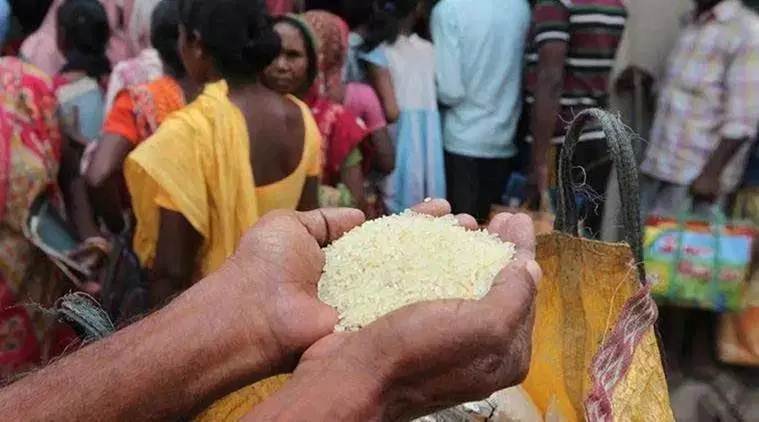 As per the Jharkhand government’s portal, 6.85 lakh migrants had registered to come back to the state, with 80,000 having made their way back by Wednesday. (File Photo)
As per the Jharkhand government’s portal, 6.85 lakh migrants had registered to come back to the state, with 80,000 having made their way back by Wednesday. (File Photo)
THE JHARKHAND government admitted on Thursday that there could be problems with implementation of the Centre’s scheme to provide free foodgrains to all migrant labourers, including those who don’t hold ration cards, for the months of May and June.
On Wednesday, the state announced distribution of 10 kg of rice, pulses, oil and salt to returning migrants. Apart from reconciling this with the Centre’s package, of 5 kg of rice and wheat per person and 1 kg of pulses per family per month, the Jharkhand government admits it has been facing problems in reaching those not holding ration cards. While the Centre will pick up the tab for the free foodgrains, the implementation has been left to states.
Jharkhand Chief Secretary Sukhdev Singh said: “We have announced allocation of Rs 550 packets to migrant labourers, each comprising 10 kg rice, 2 kg pulses, 1 litre oil and 1 kg salt. Once we get clarity on distribution by the Centre, we can adjust it against the books if it is in cash. If allocation is through grains, we will have to decide a course of action.”
Non-ration card holders are estimated to number around nine lakh in Jharkhand. They include people who applied for the cards but could not get them. On March 23, Jharkhand announced 10 kg of rice per family to these applicants, at Re 1 per kg. However, with nearly two months gone, the Food, Public Distribution and Civil Supplies Department admits only 67% of the nine lakh PDS card applicants got the allocation for April. In May so far, only 7.76% of the applicants have been covered.
The secretary of the department, Arun Singh, said he was waiting for details on the Centre’s announcement. “As far as the delay in distribution to non-card holders is concerned, we have faced issues like authentication. Plus around two lakh people (of the nine lakh total) have applied for cards since the lockdown. We are working on it too.”
Haldher Mahato, a member of the Jharkhand Food Commission, which regulates the implementation of the National Food Security Act in the state, blames the delay on initial confusion over who would handle the rations. Initially, block-level committees were formed for this, but later the task was handed over to village heads, and finally to PDS dealers. Mahato said: “The process to operationalise non-PDS distribution took more than 20 days. If returning migrants are supposed to get rations, the state needs to build an effective system.”
Development economist Jean Dreze wondered how the government would identify the beneficiaries. “Those who are in government shelters will be easy to identify, but it will be a problem to locate other migrants.”
As per the Jharkhand government’s portal, 6.85 lakh migrants had registered to come back to the state, with 80,000 having made their way back by Wednesday.